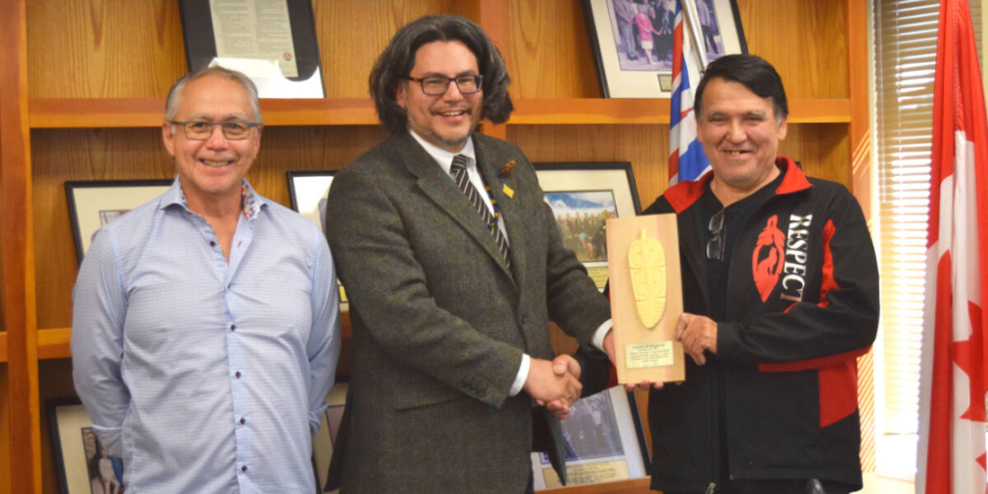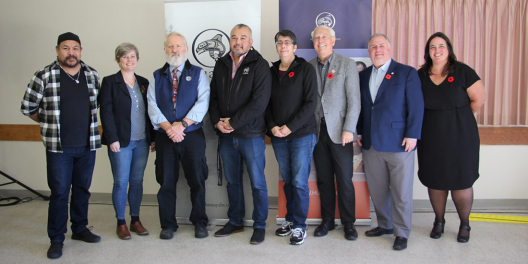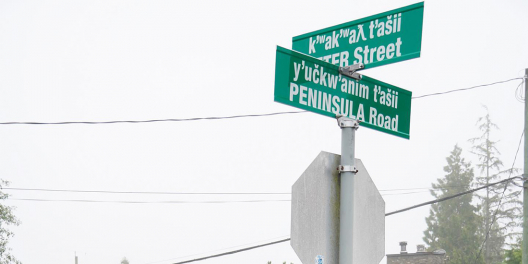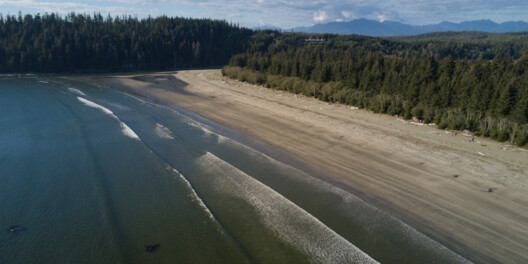Ten years ago, something major happened in the Alberni-Clayoquot Regional District. The Huu-ay-aht First Nations and Ucluelet First Nation joined the ACRD board.
They did so as part of the Maa-nulth Treaty they signed in 2011. The ACRD became the first regional district in BC to have First Nations as full voting members.
This week, the ACRD, the Huu-ay-aht, and Ucluelet Nations celebrated their ten-year anniversary.
Chuck McCarthy is the president of Ucluelet First Nation. At the celebration, he said the agreement has given their nation the chance to participate in discussions at a higher level of government.
“It’s nice for us to be participating in what’s happening in our region,” he said.
“We’ve always been told under INAC (Indigenous and Northern Affairs Canada) what to do and when you can do it. To participate in this level, having a say in what goes on in our region—I see that as the most important thing.”
Huu-ay-aht Chief Councillor Robert Dennis Sr. is a survivor of the residential school system. He said he has always been “really appreciative” of the ACRD board’s support for the Truth and Reconciliation Commission.
“There’s a lot of areas that we have to work on in terms of reconciliation,” he said. That includes economic reconciliation.
“A lot of our people depend on a living from forestry,” he said. “The opportunity is there if we do it right. To do it right, we have to manage the forest in a really good way, including old growth.”
Huu-ay-aht is in the middle of its Hišuk ma cawak Integrated Resource Management Planning process. They’ve decided to log about 4% of the old-growth the province asked them to defer.
Penny Cote has been on the board for 17 years. She’s the ACRD director for Sproat Lake. She said the day the First Nations joined the board was the biggest event of her career.
But she also noted that there’s more work to be done. Six other First Nations with territory in the regional district are not treaty nations, so they can’t officially join the board. These include Ditidaht, Hupacasath, Tseshaht, Ahousaht, Hesquiaht and Tla-o-qui-aht.
“There’s other First Nations that we are neighbours to that we would like to see also coming to this table and being voting members and being part of the voice,” she said at the celebration.
Courtenay-Alberni MP Gord Johns agreed. “This is a great day to reflect back on ten years of hard work, and the important work that still needs to be done,” he said. “There are many communities not represented at the table.”
ACRD chair John Jack is also a member of Huu-ay-aht First Nations. He noted that the ACRD and other regional districts are working with the provincial government to change the legislation to allow non-treaty nations to join regional districts.
“This board, as well as others across British Columbia, are dedicated to ensuring that we walk the path of reconciliation and inclusivity for First Nations, even if they don’t have treaties,” he said.
“We’re not complete until all ten of the nations within the regional district boundaries have the option to join, and can join if they want to.”









